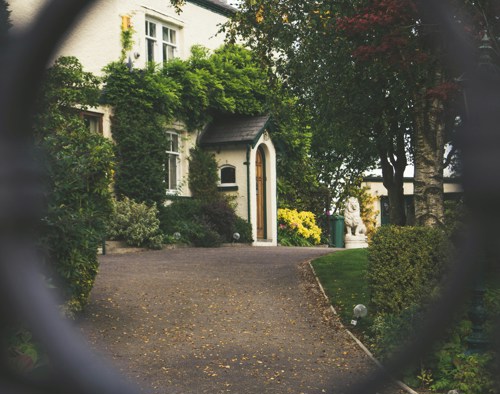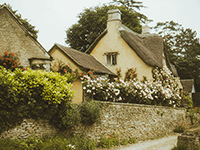
Buying a holiday home, whether abroad or in the countryside, may be a good investment. However, before you decide to get one, it's important to consider various factors first.
This blog will cover what you need to know about buying a holiday home and will outline how you can get a holiday let mortgage.
How to buy a holiday let
Many people dream of owning a holiday home but they don’t know where to start. Buying a second property can seem overwhelming, so here’s a simple step-by-step guide to help you buy a holiday let.
Decide your budget
Start by figuring out how much you can afford for your purchase. When planning your budget, include costs for maintenance, utilities, insurance, and property management fees. Carefully review your finances to avoid spending more than you can afford.
Research locations
Next, look for areas that attract tourists and have strong rental potential. The right location is crucial for your business, so explore different places to find the best one. Demand for holiday homes can vary by location. For example, popular spots like Cornwall, Devon, North Wales, or Scotland often see high interest.
Understand the market
Research property prices to see what fits your budget. If prices are too high, consider other houses or locations. Also, check the demand for holiday rentals in the area during both peak and off-peak seasons to gauge potential success.
Get pre-approved for a mortgage
Talk to lenders and brokers who specialise in holiday home mortgages to explore your borrowing options and check your eligibility. Get pre-approval before you start looking for a property to avoid finding out later that you can’t afford it. Make sure to gather all necessary documents, like proof of income, credit history, and details of any existing loans or mortgages.
Find the right property
With so many options available, your holiday home must stand out to attract guests. Highlight unique features or amenities that make your property special.
To attract more guests, consider adding popular amenities like a smart TV, washing machine, and dishwasher. Also, making your home dog-friendly can be a big plus.
Check listings on Rightmove, Zoopla, or On the Market for inspiration and potential options. Once you’ve found some houses, visit them to compare their features, condition, and rental potential.
Make an offer on a property
Once you find the right property, negotiate the price with the seller and submit your offer. Make sure all terms, such as closing dates and conditions, are agreed upon and written down.
Finalise the purchase
After meeting all conditions, you can exchange contracts, pay the deposit and complete the sale by paying the final amount. Once the house is yours, you will need to prepare the holiday let for guests and take on the management responsibilities.
While these steps guide the process, success is dependent on multiple factors and there's no guarantee you will be able to buy one.
How to finance a holiday let
A holiday let mortgage helps you buy or refinance properties used for short-term renting. To get one of these mortgages, start by calculating how much you need to borrow. Then, contact a lender or broker to check your eligibility and find a product. Be sure to compare different options to get the best deal and don’t settle for the first one you find. If you're eligible after making contact, they will guide you through the process and help with your application.
Getting a holiday let mortgage usually has higher costs than residential mortgages, such as a larger deposit (25-30%) and higher interest rates. Keep these factors in mind when considering your options.
How to market your holiday home
To attract guests, market your holiday home online effectively. Use high-quality photos that show your property is clean and appealing, as first impressions matter.
Write a clear and convincing description highlighting unique features, amenities, and details about the home and its surroundings.
However, you need to be honest in your marketing. Avoid exaggerations or misleading claims to manage expectations and prevent disappointment. This may also help you avoid bad reviews.
Summary
Getting a holiday home can be rewarding, but it needs careful planning. Before you commit, set your budget, research good locations, understand the market, get the right mortgage, and choose the right property. By covering these steps, you’ll be better prepared to make the right decision for you.
Any property used as security, which may include your home, may be repossessed if you do not keep up repayments on your mortgage.




